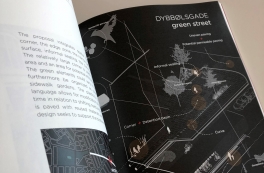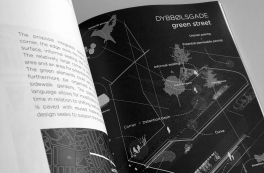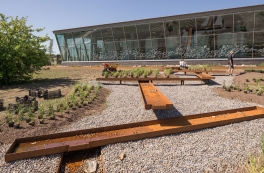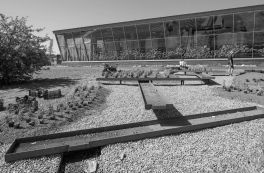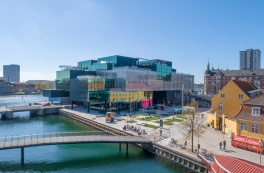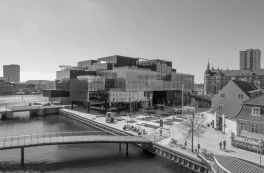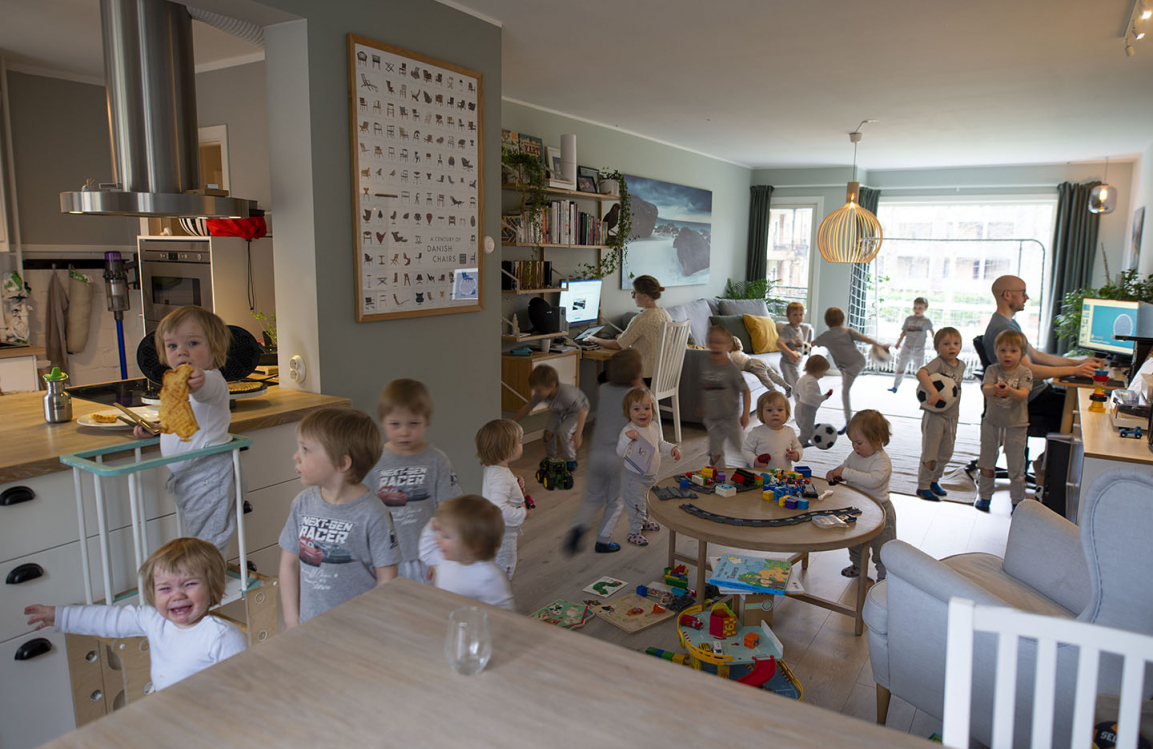 Knowledge sharing
Knowledge sharing
Developing the work life of the future requires balanced, interdisciplinary knowledge
09.09.2020Towards this end, Gottlieb Paludan Architects in Denmark and Norway have conducted employee surveys among their own staff and at the parent company AFRY. The survey asked roughly 1,200 employees to evaluate their personal experiences of working from home during the spring's COVID-19 lockdown.
The analysis of the survey’s 647 responses revealed a number of nuances in employees’ experiences depending on seniority, current life situation, etc. The results will now be included in the development of new advisory services and the planning of the company’s own future modes of operation.
Gottlieb Paludan Architects’ workplace experts join forces on an interdisciplinary team of architects and social scientists specialized in fields such as organizational development, change management and interior design. Our advice is always based on modern research, and the lockdown period’s working from home was an ideal opportunity to deepen our knowledge of workplace trends and modern work life – and contribute balanced, interdisciplinary knowledge to ongoing research.
The employee survey was worked out by taking a qualitative approach and asking open-ended questions to encourage respondents to describe the work-from-home experience in their own words. Kris Ervik, Senior Consultant, Gottlieb Paludan Architects Norway (and an anthropologist with a PhD in change management) was in charge of working out the details of and analyzing the employee survey. According to Ervik, a qualitative analysis is beneficial because the responses give a detailed, in-depth appreciation of the respondents’ personal experiences: “Asking such open-ended questions enables respondents to respond by telling about what’s most important to them, which we can see when they share the joys and challenges of working from home in this unusual period. Analysing the responses was rewarding because of the situational snapshot view it provides,” Ervik says.
Even if there were minor differences in the responses, it was still possible to single out overall tendencies. Employees have generally experienced that working from home functioned relatively well, but the survey also indicated a few unexpected nuances in how employees experienced the unusual working situation.
One size does NOT fit all
This is exemplified by the significance of seniority. Employees with many years of experience accounted that working from home meant fewer interruptions, which made them feel more productive, whereas young and newly hired employees missed receiving guidance and professional feedback. These insights indicate the necessity of developing balanced ways of working to provide satisfying working situations to experienced and young employees alike.
“...It took me a little by surprise that those most affected by the problem were young team members: the absence of peer mentoring is far more important than technology.”
According to Ervik, the analysis of the employee survey drew attention to three general points:
Management: the supervisor’s role is changed
It will be necessary to depart from traditional ‘management by walking around’, as the physical workplace no longer functions as a unifying element for the organization. Accordingly, supervisors need to be able to let go of their employees and strike a proper balance between control, trust and closeness. This requires a more personal approach to management at the same time, because the supervisor has to be more aware of each individual employee’s various skill-sets, seniority and current life situation.
Management plays a crucial role in whether employees experience working from home as positive in terms of coordination and skill-sets. At the same time, employees’ self-management and joint-leadership skills can relieve pressure on the supervisor.
"...Well-being and atmosphere are important management elements, because an extra effort is needed to maintain good relations with all employees during working from home".
Self-management: working from home is a personal skill
Like the conclusions drawn by other surveys, many found it challenging to structure their daily work and strike the right work–life balance. Whereas it was hard for some to get a good sense of work flow, others felt it was hard to take breaks and stop working at the end of the work day.
These skills become increasingly valuable as new working solutions are developed.
"...The day becomes blurred and gets longer without me even noticing it".
Join-leadership: remote work is a collective skill
Cooperation is a social skill that develops naturally in an office community, and lots of research has shown how cooperation can actually be promoted by specific office-based layout solutions. But how do you take steps to maintain the same sense of community in completely different circumstances where employees are separated, while some periodically work from home and others are at the office?
"...The number of Skype meetings has risen sharply, with less time for actual production".
Together we create cohesion
Generally speaking, the employee survey seems to indicate that if employees know what they have to do, they are just as or even more efficient than working at the office in person, whereas collaboration and development tasks are more difficult.
This necessitates the development of new modes of working that can accommodate different needs and levels. Each individual needs to develop skills in how to structure the working at home process, whereas managerial staff need to take a fresh approach to management which is capable of defining the framework and making sure that cooperation functions and occurs. The wish for greater flexibility has to be supported by dynamic facilitation of both the configuration and organization of future work solutions. Cohesive energy is the basis of success.
The results of Gottlieb Paludan Architects’ employee survey are part of developing the company’s own tools and advisory services developed in cooperation with the parent company AFRY. For example, we are creating a learning network for developing the workplace of the future in which we offer property administrators, administrative and HR managers at major Norwegian companies a unique opportunity to take part in a closed professional network focused on learning and experience sharing.
Photo: Alexander Millan Eide

